The Romain Bardet paradox
Exclusive interview with Tour de France runner-up, who bears more resemblance to Sky than meets the eye
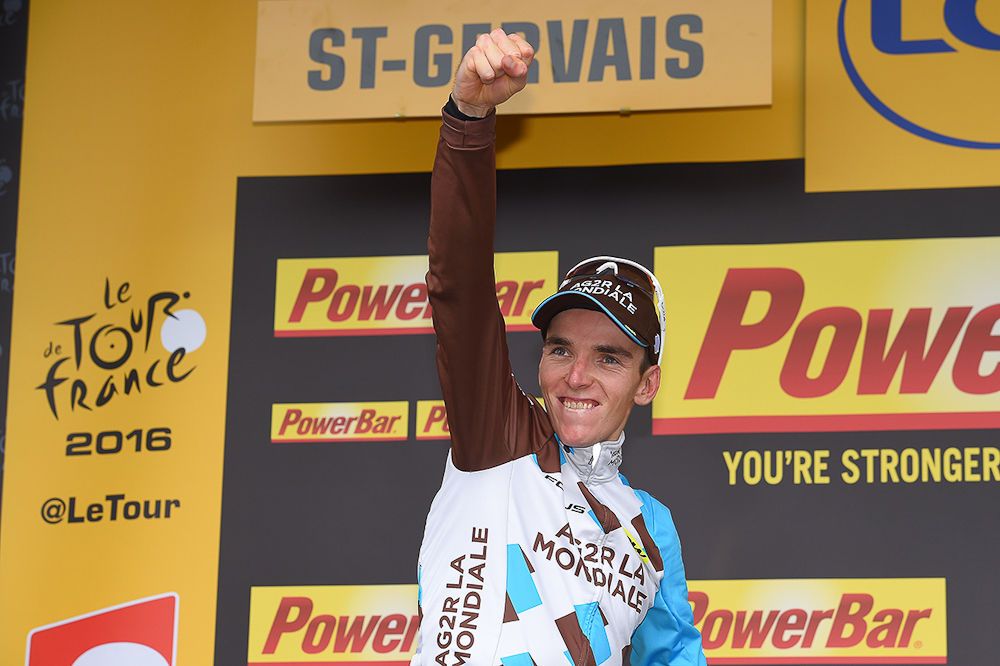
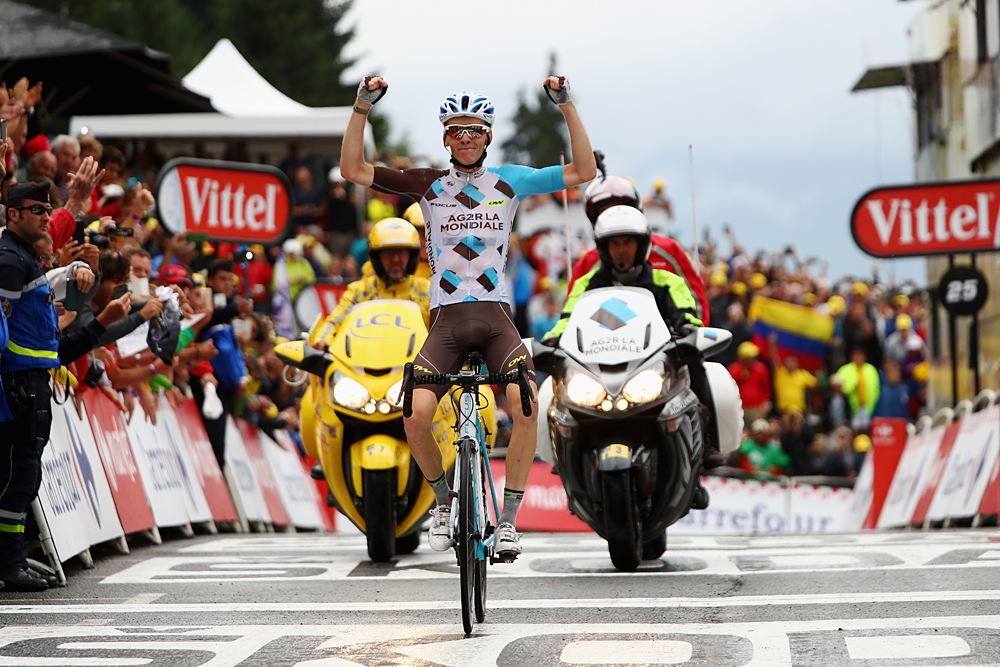
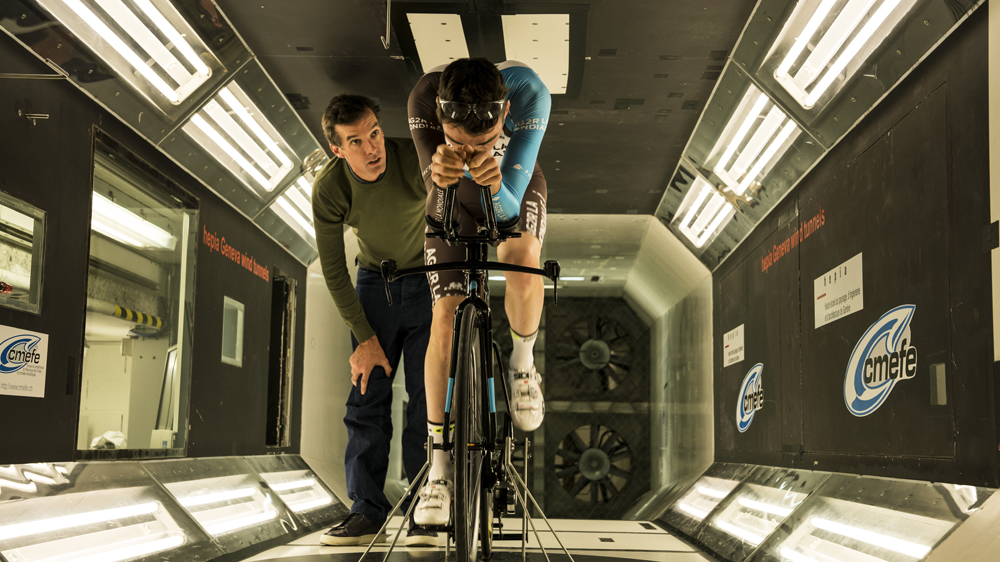
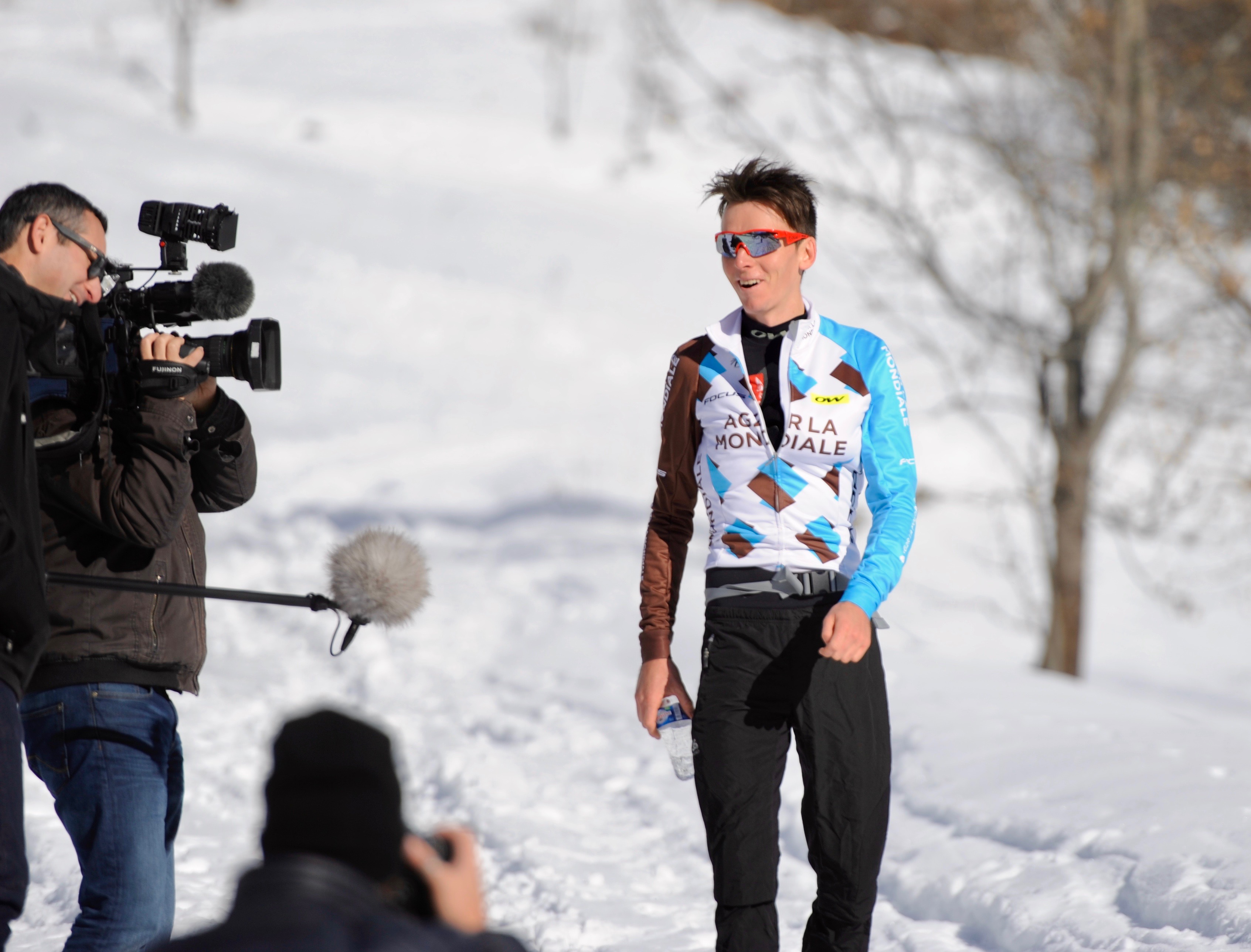
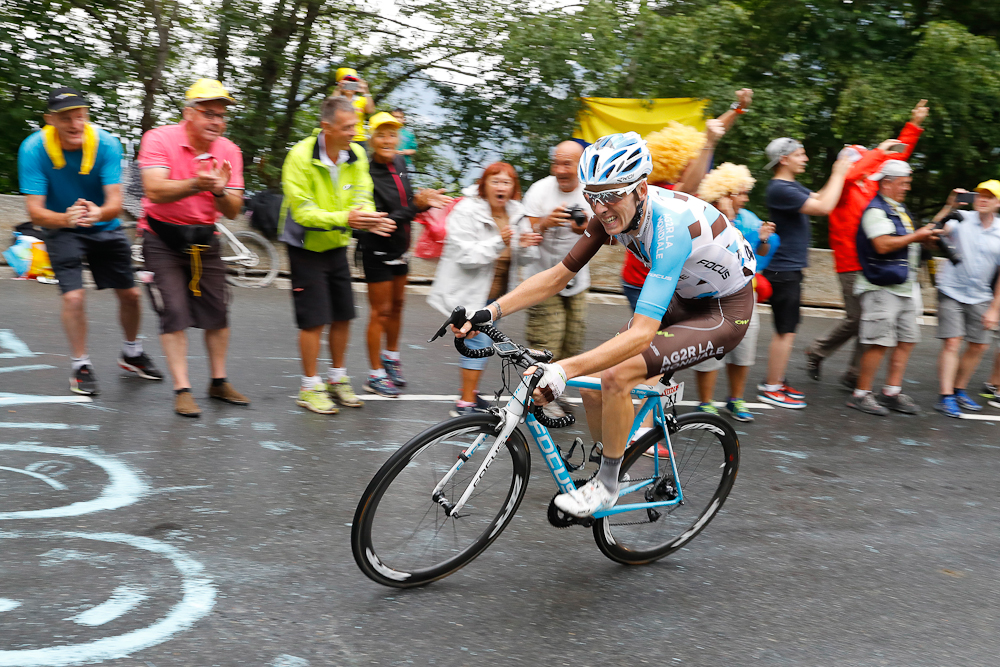
Applause began to break out in pockets of the press room in Saint Gervais-les-Bains as Romain Bardet neared the finish line on stage 19 of this year’s Tour de France.
The Frenchman, a cable car ride away up the mountain, was on his way to a second career stage victory at the Tour and, more significantly, was hauling himself onto the podium in the process.
Having sprung an opportunistic attack ahead of the final climb, his home media were full of admiration for the panache of it all, but the clapping soon turned to panicked exclamations of disbelief as their man, still some way from the line, sat up, zipped up his jersey, and rolled home, arms aloft.
"I wanted to enjoy the fervour," was Bardet's response when asked why, with the battle for podium places so tight, he wasn't fighting for every single second. "I just wanted to get away from the calculations that constrain us in the race, and let the emotion take over."
Bardet's race radio wasn't working, so he didn't have time gaps constantly being barked into his ear – a curse to most but a blessing for him. Instead, he made his way up the mountain on feel, feeding off the support of the crowds who'd braved the torrential rain – racing of the most visceral sort.
"It really was vélo à l'instinct," he continued. "That's the kind of riding you want to be doing."
Bardet's words, and the manner of his display, were all the more significant given the context of that Tour. The previous morning, L'Equipe, the newspaper with which the race shares ownership, wrote that it was "sliding slowly towards a chronic disinterest" as Chris Froome sat all-too comfortably atop the general classification. The four-part Alpine conclusion was meant to provide a thrilling climax but the almost absurd collective strength of the Sky team – Skybots, as they're known in some corners – was almost killing the race as a contest and spectacle.
Get The Leadout Newsletter
The latest race content, interviews, features, reviews and expert buying guides, direct to your inbox!
So when Bardet reached for the defibrillator in the shadow of Mont Blanc, the mood suddenly changed.
"Heroic," yelled L'Equipe the next morning, as the then 25-year-old instantly became the story of the race in France. His victory, which catapulted him from fifth to second overall, stoked the hopes of a French public growing increasingly anxious to anoint a successor to Bernard Hinault, the last home winner of the Tour all the way back in 1985.

The two sides to Bardet
The coup d'éclat was the latest in Bardet's growing portfolio of audacious feats, and saw him widely hailed as the antidote to the suffocating forces of Sky – his liberal splashes of colour a welcome addition to an otherwise monotone canvas.
But that distillation, though perhaps convenient, is not entirely accurate. The two parties do, in fact, have just as much in common as that which divides them. In what we may term the Bardet paradox, for all the Frenchman's free-spirited and 'old-school' racing style, behind the scenes a picture emerges of an unrelenting quest for improvement and a microscopic attention to detail that bears no little resemblance to Dave Brailsford's 'marginal gains' school of thought.
"Romain is always on the hunt for the little details that can allow him to progress," Julien Jurdie, his closest directeur sportif, tells Cyclingnews as AG2R-La Mondiale gather in the French Alps for their first get-together ahead of the 2017 season.
"He's very serious, very scientific, wants to have the best people around him, always likes to look at figures, have his points of reference. His preparation is based on very precise methods."
Essentially, there are two sides to Romain Bardet: his in-race self and his out-of-race self. The former is intuitive and impulsive, the latter assiduous and methodical. Perhaps the dichotomy is best represented by his relationship with his power meter; while he rarely looks at it during the cut and thrust of a race, he will later pore over the data it produces.
"It's very important for me in training to have a very scientific approach, with tangible figures, to measure progression and things like that. But then in the race it's important to work differently," says Bardet, sitting down with Cyclingnews above the ice rink in Vaujany.
"For me it's like a musician. They practice their scales at home, but during a performance they must use their inspiration and ideas to bring to fruition the work they’ve done."
'Always more, always more, always more'
Bardet, according to those around him, is certainly an ideas man.
Since joining the AG2R team in 2012, having come through the ranks of its feeder set-up, Chambéry Cyclisme Formation, he has invested himself personally in looking at a multitude of factors that might affect his performance, from nutrition and position on the bike to heat acclimatisation and sleep patterns.
For the last three years, he has worked on an individual basis with Denis Riché, a specialist in micro nutrition who studies his physiological requirements and manages his intake of vitamins, minerals, and 'trace-elements'.
Bardet also came up with the idea to go and train at altitude. Hardly a new one in the world of endurance sport, granted, but it was still a relative novelty to the AG2R team. Nowadays, group forays to locations well above 2000 metres of altitude, such as the Sierra Nevada, are commonplace.
In terms of equipment, the team is changing both bike manufacturer and kit supplier for 2017, with Bardet heavily involved in both projects. Last week he spent the day in a wind tunnel in Geneva with David Millar and a bike-fitting expert to help Factor fine-tune its first-ever time trial bike.

"Romain has caused the team to progress at the same time that he himself has progressed," notes Jurdie. "It's he who has asked questions of us. We have improved as a team in the past few years and it’s thanks in part to Romain, who has caused us to shake up our habits, and go and focus on the little details such as the coaches, medical staff, directeurs sportifs, everything."
If you had to choose one word to sum up Bardet, it would probably be 'ambitious'. The desire to improve, to mine every last ounce of his potential, is fierce – a relentless force propelling him forward.
"He never stops working – always more, always more, always more," long-standing AG2R team manager Vincent Lavenu tells Cyclingnews. "He's always looking for ways to progress, always has room for more belief."
That drive can make it difficult for Bardet to savour his success. According to an old coaching maxim in tennis, you should never pause to watch and admire your latest shot, but get straight back to the centre of the baseline and turn your focus to the next one. Had Bardet been a budding tennis player – and he is a true all-sportsman – you sense he'd never have struggled with that one.
Julien Jurdie refers to him as an éternel insatisfait – someone who is never satisfied with his achievements.
"Maybe, yes, it's true," says Bardet. "It's true, but that allows me to keep progressing each year. I've been a pro for five years and each year I've progressed.
"It's an ambition to be the best I can be – not an ambition to win the Tour de France, x races a year, or whatever. It's the ambition to make the most of myself, to be able to look at my career in three, five, ten years time and say 'I did the maximum'."
'My career won't be a failure if I never win the Tour'
Bardet is a long-term thinker and he's willing to sacrifice his more immediate prospects in the name of the greater good.
Despite his Tour de France breakthrough this year, for example, he has said he's not yet ready to win the race, and has spoken about his desire to turn to other the Grand Tours – neither of which he has experienced yet. He seems particularly drawn to the 100th edition of the Giro d'Italia next season, even if it entails 67km worth of time trialling – "It could serve me well for the Tour, not necessarily in 2017 but in the years to come."
"I'm keen to explore other avenues so as not to be dependent on the Tour," he adds. "It's about setting myself new challenges so I can kick on."
One such area is week-long racing, where he wants to develop his leadership skills and winning mentality. Bardet's only stage race victory came three years ago at the Tour de l'Ain, and he has never raced in a leader's jersey (that victory came on the final day). He made a step forward this year with second at the Tour of Oman and second behind Froome in a strong Critérium du Dauphiné field, but now the mindset must change.
"At the moment we're not going to week-long races with the objective of winning them; we go to achieve the best result possible," he told L'Equipe last month. "Now, I must try to win them, and risk losing them. That's the next step.
"I need to gain the experience of wearing the jersey and my team defending it."
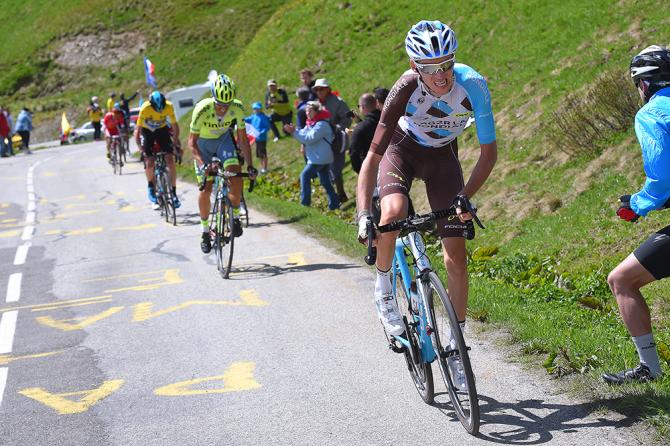
Despite speaking enthusiastically about the Giro, it seems Bardet will end up doubling up on the Tour de France and Vuelta a España next term, as is the wish of the AG2R team management. In a French team with a French sponsor, the star man cannot realistically skip the Tour, and the coaches are understandably keen to have him there at the peak of his powers, rather than with a particularly demanding Giro in the legs.
Bardet has been on an upward curve at the Tour since finishing an extremely encouraging 15th on his debut in 2013 as a 22-year-old. He was sixth in 2014, before winning his first stage in 2015 – despite finishing three places lower on GC – and this year came the podium breakthrough.
As Thibaut Pinot slumped for a second successive year, seemingly hitting a wall at the Tour, Bardet finds himself as the lead torchbearer of the hopes of a malnourished and expectant nation.
He claims he doesn't feel burdened by the pressure, but is nevertheless keen to play down the hype.
"I still have a lot to prove. You have to detach yourself from the emotion of July and analyse things with a cool head," he says.
"People talk about my second place but forget the homogeneity between second and fifth place. I shook things up a bit and my opportunism allowed me to get onto the podium, but there wasn't much between us on a physical level.
"Of course there's expectation and that's stimulating, but I'm not going to base my career on selling the dream that I'm going to be the next Frenchman to win the Tour. My career won't be a failure if I don't manage it."
The saying goes that hard work beats talent when talent doesn't work hard. In Bardet's case, a rare level of natural talent is working with an extreme level of diligence – whatever happens, the next few years look very bright indeed, and you can be sure they won't be dull.
Patrick is a freelance sports writer and editor. He’s an NCTJ-accredited journalist with a bachelor’s degree in modern languages (French and Spanish). Patrick worked full-time at Cyclingnews for eight years between 2015 and 2023, latterly as Deputy Editor.
